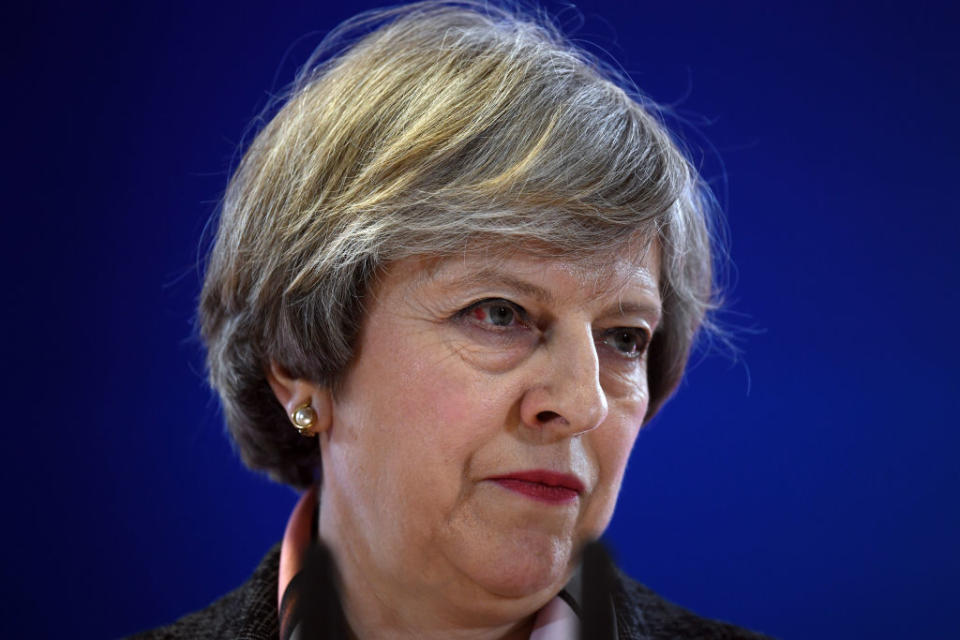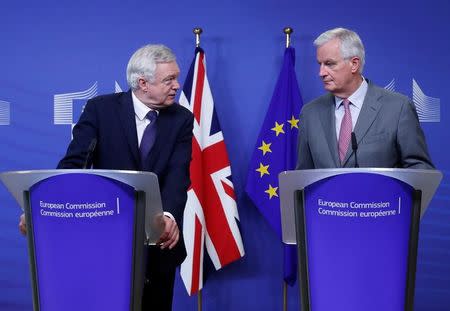Brexit has become a phoney war - and that's dangerous

It is already five months since Theresa May triggered Article 50, thereby serving the mandatory two years’ notice for Britain to leave the EU on 29 March, 2019.
In that time there have been limited proposals formulated in terms of policy documentation – especially by the UK government.
The EU side certainly knows what it wants and most of what we hear this side of the Channel from Juncker, Verhofstadt and Barnier are edicts and demands.
Well, Britain’s very own Brexit triumvirate of May, Davis and Fox are back at work from their summer holidays; so let battle commence!
MORE: 5 things the UK needs to maintain a Green Brexit
MORE: Frankfurt and Dublin set to sweep bank jobs away from UK
The word on the street is that, despite discussion papers on transition periods for customs unions and plans to maintain equilibrium (or near enough the status quo in the case of Ireland and Northern Ireland), the UK government is a mile behind the curve in terms of preparation.
The fact that the Government, after a disastrous general election, has no overall majority, inevitably means that a ‘hard’ Brexit – or a ‘hard-nosed’ plan – should be no longer on the table for discussion.

Chancellor Philip Hammond has been beavering away during the holiday period with sensible compromises such as a two-year moratorium on trade and financial issues to prevent a ‘cliff-edge’ effect.
Until this Monday, the UK government seemed woefully short of top trade negotiators, despite the fact 14 months have passed since the referendum.
I have no doubt senior civil servants have great qualities and knowledge of constitutional culture, but surely nothing can replace business savvy and expertise in commercial law.
Without the appointment of Crawford Falconer, a very experienced New Zealand trade negotiator, the UK’s team lacked negotiating business acumen, which could have left us stuttering at the table of conciliation.
‘The Barnier Boys’, on the other hand, are light years ahead.
MORE: EU could retain fishing rights in UK waters after Brexit
MORE: May urges EU not to place new restrictions on British goods
Brussels has made it crystal clear that the divorce bill, rumoured to have been costed at between E36 and E50 billion, Ireland’s role and outstanding domicile issues for EU and UK citizens must be settled before trade talks can begin. Brexit Secretary David Davis won’t agree to separate conversations.
These issues are inextricably intertwined. In fact, as stated on Sunday, he wants to deal with the idea of negotiating a free trade agreement, citizens’ rights and a final termination of the ECJ’S jurisdiction.
There is also a school of thought that believes Brexit is simply too difficult and complicated to agree terms successfully.
The Financial Times recently appeared to illustrated this point by suggesting there were 759 acts that needed repealing or renegotiating. What is required above all else is a will to find the key to the kingdom. Negative thinking on the complexity of delivering Brexit cannot be countenanced; though the path to reach agreement will constantly look very precarious. But, contrary to public opinion, the EU does not hold all the aces in the hole.
Take trade.
The UK is the third largest contributor to the EU budget and an acrimonious divorce would be unhelpful for the EU. The UK does 46% of its trade with the EU; the EU only 11% of its trade with the UK.
If the EU were to pull the plug on the UK, it would take some time to find markets to replace demand in the UK, which could mean the EU entering a deep recession. That is not what the EU would want, nor was it what the UK voted for.
In a few years’ time free trade agreements could be hugely beneficial to the UK. The EU’s security could also benefit from a good free trade agreement and, as Crawford Falconer also wryly points out: “History is littered with instances of the destructive political consequences of closed markets.”
What about the City?
The financial sector and the City of London is responsible for about 8% of UK GDP and it is imperative that the minefields of ‘passporting’ and regulation have a satisfactory outcome in the negotiations. EU charm offensives have been full-on in an attempt to trash London’s infrastructure and reputation as the world’s leading financial centre.
Many of the great financial titans – HSBC, JP Morgan, Goldman Sachs, Morgan Stanley, Barclays, Lloyds Banking Group, Deutsche Bank, UBS, Mitsubishi UFJ, Credit Suisse to name the leading ‘dramatis personae’ – have made sensible contingency plans to move a few hundred staff each, with JP Morgan, Goldman and HSBC shifting several thousand to Paris, Frankfurt, Amsterdam and Dublin.
London has 70 years of unrivalled experience and infrastructure with the support of the best legal and accountancy advice in the world. Respectfully these other centres would take years to usurp London and would be a hugely expensive operation moving thousands of people against their will. This is not arrogance – it is common sense.
As for global clearing, the US and others have been warned that tinkering with the ‘largest insurance company in the world’ would not be well received. The only beneficiaries would be the US and the Far East.
And don’t forget, London is the centre of the time zone. It is also interesting to note that Deutsche Bank and ING have made commitments to expand their London operations.
To avoid a dangerously unnecessary hiatus, which could have a seriously damaging effect to growth on both sides of the Channel, I suggest both the UK and EU cease indulging in a phoney war. The UK economy is not as weak as some would have it with unemployment at its lowest since 1975. Mutual success is there for the taking.
David Buik MBE is a market commentator at Panmure Gordon. The companies he has worked for mostly involved financial spread betting. He worked for BGC Partners from 1999 to 2011. He has appeared as a financial pundit on the BBC, Bloomberg Television, CNN International and ABC News (Australia).

 Yahoo Finance
Yahoo Finance 
